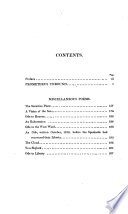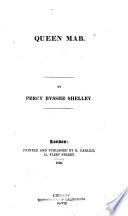Works
Hellas
Percy Bysshe Shelley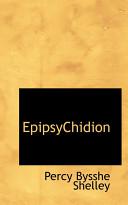
Epipsychidion
Percy Bysshe ShelleyOde to the West Wind
Percy Bysshe Shelley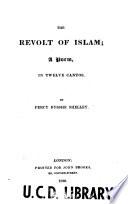
The Revolt of Islam
Percy Bysshe Shelley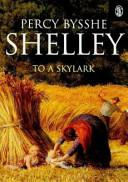
To a Skylark
Percy Bysshe ShelleyThe Cloud
Percy Bysshe Shelley
A Vindication of Natural Diet
Percy Bysshe Shelley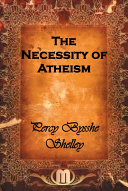
The Necessity of Atheism
Percy Bysshe Shelley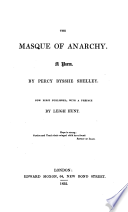
The Masque of Anarchy
Percy Bysshe ShelleyDeath (Shelley, 2)
Percy Bysshe ShelleyOzymandias
Percy Bysshe Shelley
The Cenci
Percy Bysshe Shelley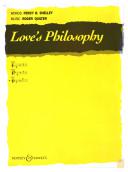
Love's Philosophy
Percy Bysshe ShelleyPrometheus Unbound; a lyrical drama in four acts with other poems/An Exhortation
Percy Bysshe ShelleyThe Indian Serenade
Percy Bysshe ShelleyTo Night
Percy Bysshe ShelleyFamous Percy Bysshe Shelley Quotes
“Wild Spirit, which art moving everywhere;
Destroyer and preserver; hear, oh, hear!”
St. I
Ode to the West Wind (1819)
St. 18
To a Skylark (1821)
Source: The Complete Poems
Percy Bysshe Shelley Quotes about love
Notes
Queen Mab (1813)
St. 8
Song: Rarely, Rarely, Comest Thou http://www.poetryconnection.net/poets/Percy_Bysshe_Shelley/17889 (1821)
Percy Bysshe Shelley Quotes about the world
Love's Philosophy http://www.readprint.com/work-1365/Percy-Bysshe-Shelley (1819), st. 1
St. 6
Hymn to Intellectual Beauty (1816)
Source: Epipsychidion (1821), l. 595
Percy Bysshe Shelley: Trending quotes
“In fact, the truth cannot be communicated until it is perceived.”
Source: The Necessity of Atheism and Other Essays
“a single word even may be a spark of inextinguishable thought”
Source: A Defence of Poetry and Other Essays
“No change, no pause, no hope! Yet I endure.”
Prometheus Unbound
Percy Bysshe Shelley Quotes
St. XXXVIII
Adonais (1821)
Context: He wakes or sleeps with the enduring dead;
Thou canst not soar where he is sitting now -
Dust to the dust! but the pure spirit shall flow
Back to the burning fountain whence it came,
A portion of the Eternal.
“I have drunken deep of joy,
And I will taste no other wine tonight.”
The Cenci (1819), Act I, sc. iii, l. 88
“She faded, like a cloud which had outwept its rain.”
St. X
Adonais (1821)
Context: Lost Angel of a ruined Paradise!
She knew not 'twas her own; as with no stain
She faded, like a cloud which had outwept its rain.
“And singing still dost soar and soaring ever singest.”
St. 2
To a Skylark (1821)
Context: Higher still and higher
From the earth thou springest,
Like a cloud of fire;
The blue deep thou wingest,
And singing still dost soar and soaring ever singest.
“The more we study, we the more discover / Our ignorance.”
Calderón, “Scenes from the <i>Magico Prodigioso</i>” fourth speech of Cyprian, as translated by Shelley, found in The Poetical Works of Percy Bysshe Shelley, Scott, William B, ed. https://archive.org/details/poeticalworksofp1934shel/page/577
Misattributed
“Poetry is a mirror which makes beautiful that which is distorted.”
A Defence of Poetry http://www.bartleby.com/27/23.html (1821)
“Soul meets soul on lovers' lips.”
The Moon, Act IV, l. 451
Variant: Soul meets soul on lovers' lips.
Source: Prometheus Unbound (1818–1819; publ. 1820)
“With hue like that when some great painter dips
His pencil in the gloom of earthquake and eclipse.”
Canto V, st. 23
The Revolt of Islam (1817)
St. 2
Hymn to Intellectual Beauty (1816)
Context: Spirit of BEAUTY, that dost consecrate
With thine own hues all thou dost shine upon
Of human thought or form, where art thou gone?
Why dost thou pass away and leave our state,
This dim vast vale of tears, vacant and desolate?
Ask why the sunlight not for ever
Weaves rainbows o'er yon mountain-river,
Why aught should fail and fade that once is shown,
Why fear and dream and death and birth
Cast on the daylight of this earth
Such gloom, why man has such a scope
For love and hate, despondency and hope?
“An old, mad, blind, despised, and dying king”
English in 1819 http://www.readprint.com/work-1361/Percy-Bysshe-Shelley (1819), l. 1
Context: An old, mad, blind, despised, and dying king, —
Princes, the dregs of their dull race, who flow
Through public scorn, — mud from a muddy spring, —
Rulers who neither see, nor feel, nor know,
But leech-like to their fainting country cling,
Till they drop, blind in blood, without a blow.
St. 1
Hymn to Intellectual Beauty (1816)
Context: The awful shadow of some unseen Power
Floats though unseen among us; visiting
This various world with as inconstant wing
As summer winds that creep from flower to flower;
Like moonbeams that behind some piny mountain shower,
It visits with inconstant glance
Each human heart and countenance;
Like hues and harmonies of evening,
Like clouds in starlight widely spread,
Like memory of music fled,
Like aught that for its grace may be
Dear, and yet dearer for its mystery.
“A traveller from the cradle to the grave
Through the dim night of this immortal day.”
Demogorgon, Act IV, l. 549
Prometheus Unbound (1818–1819; publ. 1820)
Context: Man, who wert once a despot and a slave,
A dupe and a deceiver! a decay,
A traveller from the cradle to the grave
Through the dim night of this immortal day.
Ozymandias (1818)
Context: I met a traveller from an antique land
Who said: — Two vast and trunkless legs of stone
Stand in the desert. Near them on the sand,
Half sunk, a shatter'd visage lies, whose frown
And wrinkled lip and sneer of cold command
Tell that its sculptor well those passions read
Which yet survive, stamp'd on these lifeless things,
The hand that mock'd them and the heart that fed.
And on the pedestal these words appear:
"My name is Ozymandias, king of kings:
Look on my works, ye mighty, and despair!"
Nothing beside remains: round the decay
Of that colossal wreck, boundless and bare,
The lone and level sands stretch far away.
When the Lamp is Shattered http://www.readprint.com/work-1382/Percy-Bysshe-Shelley (1822), st. 1
Context: When the lamp is shattered
The light in the dust lies dead —
When the cloud is scattered,
The rainbow's glory is shed.
When the lute is broken,
Sweet tones are remembered not;
When the lips have spoken,
Loved accents are soon forgot.
St. 7
Hymn to Intellectual Beauty (1816)
Context: The day becomes more solemn and serene
When noon is past; there is a harmony
In autumn, and a lustre in its sky,
Which through the summer is not heard or seen,
As if it could not be, as if it had not been!
Thus let thy power, which like the truth
Of nature on my passive youth
Descended, to my onward life supply
Its calm, to one who worships thee,
And every form containing thee,
Whom, SPIRIT fair, thy spells did bind
To fear himself, and love all human kind.
St. LII
Adonais (1821)
Context: The One remains, the many change and pass;
Heaven's light forever shines, Earth's shadows fly;
Life, like a dome of many-coloured glass,
Stains the white radiance of Eternity,
Until Death tramples it to fragments.
St. XL
Adonais (1821)
Context: He has outsoared the shadow of our night;
Envy and calumny and hate and pain,
And that unrest which men miscall delight,
Can touch him not and torture not again;
From the contagion of the world's slow stain
He is secure, and now can never mourn
A heart grown cold, a head grown grey in vain.
St. XXXIX
Adonais (1821)
Context: Peace, peace! he is not dead, he doth not sleep—
He hath awakened from the dream of life—
'Tis we, who lost in stormy visions, keep
With phantoms an unprofitable strife,
And in mad trance, strike with our spirit's knife
Invulnerable nothings.
St. 7 (a cenotaph is an empty tomb or a monument erected in honor of a person who is buried elsewhere)
The Cloud (1820)
Context: For after the rain when with never a stain
The pavilion of Heaven is bare,
And the winds and sunbeams with their convex gleams
Build up the blue dome of air,
I silently laugh at my own cenotaph,
And out of the caverns of rain,
Like a child from the womb, like a ghost from the tomb,
I arise and unbuild it again.
Source: Epipsychidion (1821), l. 147
Context: Thy wisdom speaks in me, and bids me dare
Beacon the rocks on which high hearts are wreckt.
I never was attached to that great sect,
Whose doctrine is, that each one should select
Out of the crowd a mistress or a friend,
And all the rest, though fair and wise, commend
To cold oblivion, though it is in the code
Of modern morals, and the beaten road
Which those poor slaves with weary footsteps tread,
Who travel to their home among the dead
By the broad highway of the world, and so
With one chained friend, — perhaps a jealous foe,
The dreariest and the longest journey go.
St. 7
Hymn to Intellectual Beauty (1816)
Context: The day becomes more solemn and serene
When noon is past; there is a harmony
In autumn, and a lustre in its sky,
Which through the summer is not heard or seen,
As if it could not be, as if it had not been!
Thus let thy power, which like the truth
Of nature on my passive youth
Descended, to my onward life supply
Its calm, to one who worships thee,
And every form containing thee,
Whom, SPIRIT fair, thy spells did bind
To fear himself, and love all human kind.
St. I
Ode to the West Wind (1819)
Context: O wild West Wind, thou breath of Autumn's being,
Thou, from whose unseen presence the leaves dead
Are driven, like ghosts from an enchanter fleeing,
Yellow, and black, and pale, and hectic red,
Pestilence-stricken multitudes: O thou,
Who chariotest to their dark wintry bed
The winged seeds, where they lie cold and low,
Each like a corpse within its grave, until
Thine azure sister of the spring shall blow
Her clarion o'er the dreaming earth.
“I met Murder on the way —
He had a mask like Castlereagh”
Very smooth he looked, yet grim;
Seven blood-hounds followed him.
St. 2
The Masque of Anarchy (1819)
“Make me thy lyre, even as the forest is:
What if my leaves are falling like its own!”
St. V
Ode to the West Wind (1819)
Context: Make me thy lyre, even as the forest is:
What if my leaves are falling like its own!
The tumult of thy mighty harmonies
Will take from both a deep, autumnal tone,
Sweet though in sadness. Be thou, Spirit fierce,
My spirit! Be thou me, impetuous one!
“Nought may endure but Mutability.”
Mutability http://www.web-books.com/Classics/Poetry/anthology/Shelley/Mutability.htm (1816), st. 4
Context: p>We rest. — A dream has power to poison sleep;
We rise. — One wandering thought pollutes the day;
We feel, conceive or reason, laugh or weep;
Embrace fond woe, or cast our cares away:It is the same! — For, be it joy or sorrow,
The path of its departure still is free:
Man's yesterday may ne'er be like his morrow;
Nought may endure but Mutability.</p
A Defence of Poetry http://www.bartleby.com/27/23.html (1821)
“O Wind,
If Winter comes, can Spring be far behind?”
St. V
Source: Ode to the West Wind (1819)
Context: Scatter, as from an unextinguished hearth
Ashes and sparks, my words among mankind!
Be through my lips to unawakened earth
The trumpet of a prophecy! O Wind,
If Winter comes, can Spring be far behind?
Music, When Soft Voices Die http://www.readprint.com/work-1367/Percy-Bysshe-Shelley (1821)
Source: The Complete Poems
St. 91
(1819)
Source: The Masque of Anarchy: Written on Occasion of the Massacre at Manchester
Source: A Defence of Poetry and Other Essays
“The pleasure that is in sorrow is sweeter than the pleasure of pleasure itself.”
A Defence of Poetry http://www.bartleby.com/27/23.html (1821)
“Death is the veil which those who live call life;
They sleep, and it is lifted.”
Earth, Act III, sc. iii, l. 113
Variant: Lift not the painted veil which those who live
Call Life.
Source: Prometheus Unbound (1818–1819; publ. 1820)
Article 19
"Declaration of Rights" http://knarf.english.upenn.edu/PShelley/declarat.html (1812)
“Familiar acts are beautiful through love.”
The Earth, Act IV, l. 403
Prometheus Unbound (1818–1819; publ. 1820)

